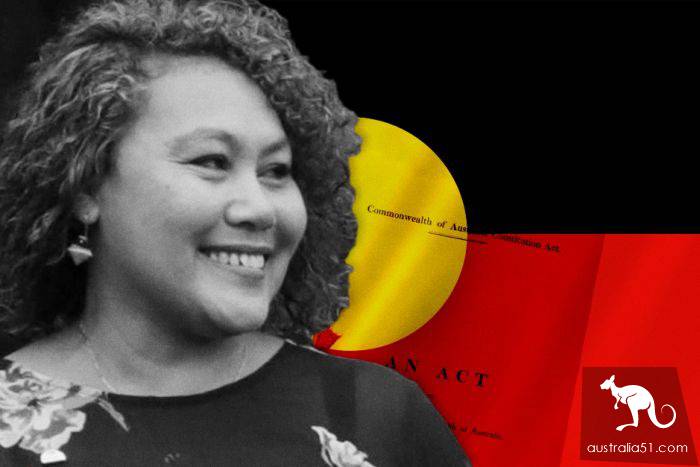
From May 27 to June 3 each year, Australia National Reconciliation week. Do you know the origin of the week and its impact on today?
From May 27 to 6 and 3 each year, Australia`s National Peace week (National Reconciliation Week), is a day to recognize the history and achievements of Australian aborigines in this land. The theme of this year`s Reconciliation week is "based on reality, brave fellow (Grounded in Truth, Walk Together with Courage)."
Key points:
- The 1967 referendum gave the aborigines of Australia their rightful rights and interests
- Pay attention to the use of words when addressing aboriginal groups in order to avoid offending
- Recognition and respect for aborigines go deep into all aspects of Australian life
The diverse culture and profound history of Australia`s aborigines are a precious and indispensable part of the country. Our respect for aborigines is also reflected in many other aspects of life.
First, the Aboriginal and Torres Strait Islander flags are official flags approved by Australia`s government, which can usually be seen flying with the Australian flag in public places, public institutions, schools and hospitals.
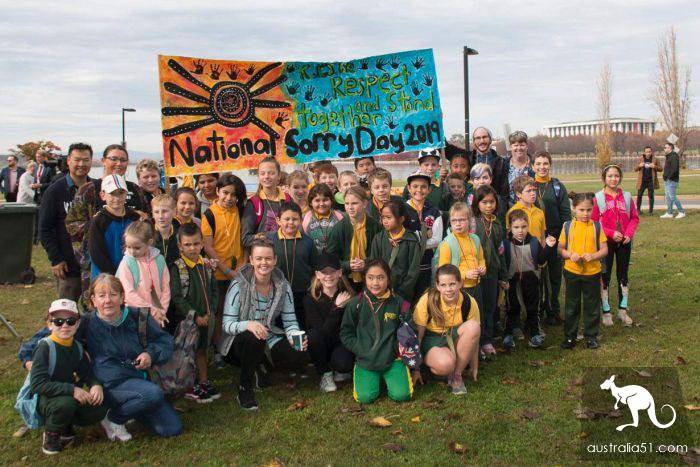
Recognition of aborigines and their cultures is an indispensable lesson in Australian schools. (ABC News: Kate Midena)
In addition, in the opening speeches of some official events, speakers will recognize and commemorate the aborigines of the land. For example, the following will be added at the beginning of the speech:
"We recognize the traditional owners of all Australia and their continued contact with the land, waters and culture. We salute their past, present and future.
We acknowledge the Traditional Owners of country throughout Australia and recognise their continuing connection to land, waters and culture. We pay our respects to their Elders past, present and emerging.”
At the opening ceremony of some events, as well as at the inauguration of new buildings, there will also be traditional Aboriginal ceremonies, such as the fumigation ceremony, which (smoking ceremony), aborigines will burn local plants to produce smoke, and believe that the smoke will clean the site. Drive out the evil spirits.
In addition, the Australian Department of Education requires school teachers to teach Aboriginal and Torres culture to deepen students` identity with aborigines and to enable students to experience their own ties with aborigines and their cultures.
All this is closely related to National Reconciliation week to deepen understanding and respect for aborigines.
Australia National Peace week
The Australian National Peace week (NRW) began in 1993, which is also the International year of the World`s Indigenous people, (International Year of the World`s Indigenous Peoples). In 1996, the Aboriginal Reconciliation Commission (Council for Aboriginal Reconciliation) launched the Australian National Reconciliation week for the first time. In 2000, the Australian reconciliation organization (Reconciliation Australia) was established to play a leading role in Aboriginal reconciliation across the country.
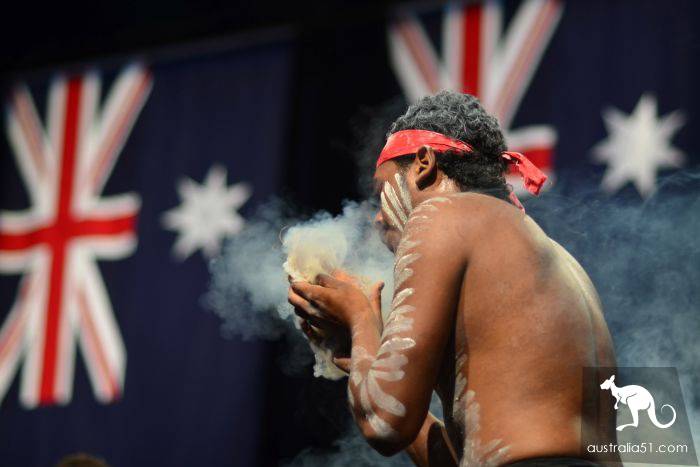
The traditional pyrotechnic ceremony(ABCNews:Tim Leslie)is held at the opening ceremony of many events and the opening ceremony of the new building.
Today, businesses, schools, early childhood education institutions, social organizations and some individuals across Australia celebrate National Reconciliation week, with hundreds of events held across the country at this time of year.
According to information on the official website of the Australian Reconciliation Organization, National Reconciliation week advocates that "all Australians learn from our common history, culture and achievements, and explore the contribution that each of us can make to Australian reconciliation."
The annual settlement week is from May 27 to June 3, commemorating two landmark points in time: the referendum on May 27, 1967, and the Marbo ruling of June 3, 1992.
1967 Australian referendum
On May 27, 1967, then Australian Prime Minister Harold Holt (Harold Holt) ordered a referendum on two amendments to indigenous peoples in Australia`s constitution. In essence, the vote was actually a referendum on the 1967 constitution Amendment. According to the results of the referendum, the bill officially became law on August 10, 1967.
The amendment won almost one-sided support, with 90.77%of the vote in six states in Australia, the most popular referendum in Australia`s history.
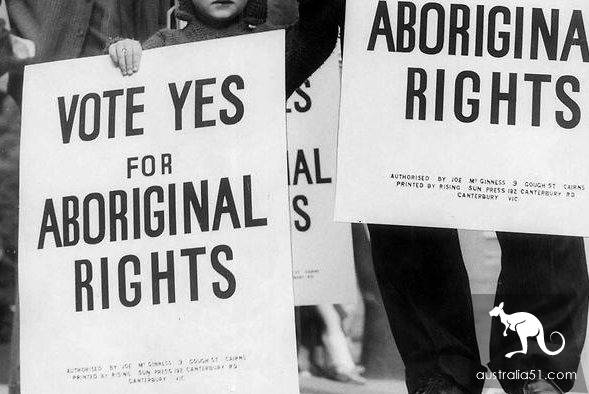
The 1967 referendum was a landmark event for indigenous Australians. (AAP: Joe Bloggs)
The amendment proposes to amend section 51, paragraph 26, and section 127 of constitution, Australia.
Article 51 of the Australian constitution provides that:
``Pursuant to this establishment, party has the right to make a law for the Commonwealth`s peace, order and good governance:
(26) people of any race other than the indigenous peoples of the states who consider it necessary to develop a special law for them; "
As amended, the provision of "(other than the aboriginal race in any State) with the exception of indigenous states" in paragraph 26 was deleted, which means that the Australian parliament also represents the interests of the aborigines when it formulates the law.
Article 127 of the constitution provides that "indigenous peoples shall not be taken into account in calculating the population of the Commonwealth, a state or other parts of the Commonwealth".
The clause was excluded from the 1967 amendment.
Marbo ruling
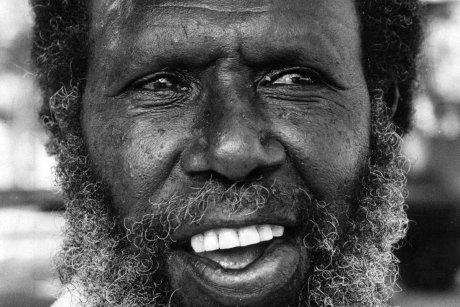
The Marbo ruling pushed Australia`s parliament to pass the Aboriginal Land Act in 1993. (Jim McEwan)
In May 1982, a Fernando Islander named Eddie Mabo (Eddie Mabo) led several other companions to Queensland to argue that they had legal ownership of an island in the Strait Islands. To this end, they fought for ten years.
On 3 June 1992, the High Court of Australia ruled that one of the islanders, Merem (Meriam), had traditional ownership of an island called Mer, and ruled that the principle of (Terra nullius) without ownership should not apply to Australia, This year, however, Eddie Mabo has died in the world of leave.
The decision, known as the Marbo ruling (Mabo Decision), recognized rights, owned by Aboriginal Australians and Torres Strait Islander peoples, saying the rights existed before the arrival of the British colonists. It still exists.
The Mabo ruling is an important historical event in recognition of Aboriginal and Torres Strait Islander rights, which recognizes their unique ties to the land of Australia. The ruling also prompted Australia`s parliament to pass the Aboriginal Land Act in 1993.
Indigenous,Aboriginal or First Nations??
After living in Australia for a while, you may hear different expressions of aborigines, including Indigenous,Aboriginal,First Australians and First Nations. However, some words are offensive when used to refer to indigenous groups. So which word is the most appropriate to use?
When referring to the Australian aborigines in the official or formal context, the term "indigenous and Torres Strait Islander (Aboriginal and Torres Strait Islander peoples)" is usually used, which contains two different groups. Aboriginal is used to describe the aborigines of the Australian mainland. Torres Strait Islander refers to the aborigines of the 274th islands in the Torres Strait in northern Australia. This phrase is the most formal and does not offend a group of expressions.
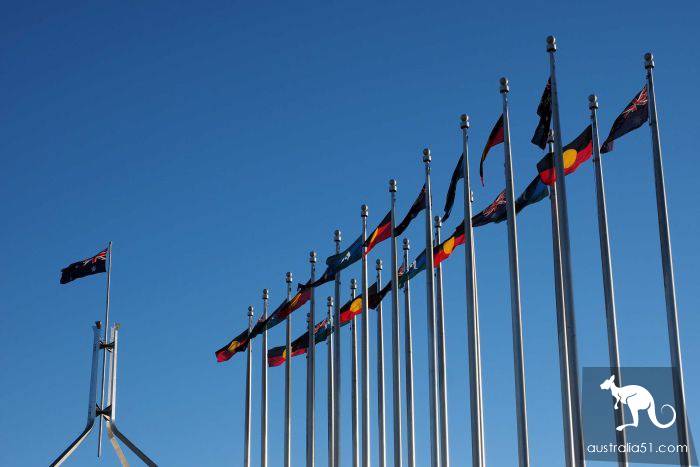
The Australian Aboriginal flag can be seen in many places, and the Torres Islander flag flies with the Australian flag. (Wikicommons)
Many people also use the word Indigenous when describing aborigines. According to Common ground, an Aboriginal service website, the word has a broader meaning, including Aboriginal and Torres Strait Islander groups. At the same time, almost everyone all over the world uses the word to describe the native (native people), but it is the word that is too general. So there is not enough respect for the diverse cultures and uniqueness of the Australian aborigines and Torres Islanders. So when using the word, consider the context, and if the speaker can understand the speaker`s respect for the diversity of the aborigines, the word is not unusable.
In recent years, First Nations and First Australians have also been more and more used to address aboriginal groups. Although used less frequently than the above words, many people believe that this is a word of full respect for Aboriginal and Torres Strait Islander peoples. It is important to note that the word, First Australians refers to Australia, dwarfing the status of people who lived on this land before the country was formed. The use of the word First Nations can avoid this problem to some extent.

